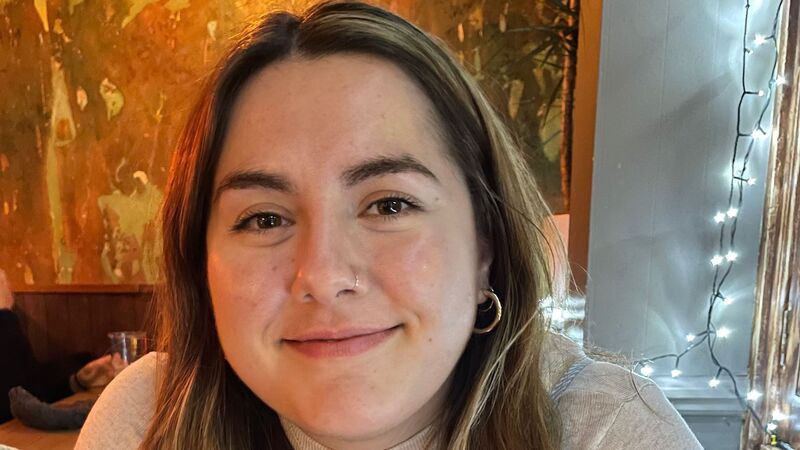You are viewing your 1 free article this month. Login to read more articles.
Larry Finlay: Keeper of the flame
Taking charge of a highly successful company may be a more daunting challenge than joining one that needs an overhaul. Your chief rivals are likely to get more competitive, because they have to; your own team, knowing they are the best, risk complacency. Your task may be even harder if you have been working at the company for some time already. How do you keep your thinking fresh?
This is the position of Larry Finlay, who became managing director at Transworld earlier this year. Before that, he was joint m.d. of the company with Patrick Janson-Smith. Before that, he was deputy publisher; he has also been marketing director. He joined the company as a copywriter in 1983.
In 1982, Paul Scherer had taken the helm at Transworld: an appointment that marked the beginning of a golden era for the company. During the period of Finlay's rise through the ranks, it has consistently been the most successful commercial publisher in the UK, dominating the annual fastseller lists and achieving profit margins that have been the envy of its rivals. Transworld is envied, too, for its enthusiastic and professional culture. Its titles seem to be propelled on to the bestseller lists by corporate fervour.
Scherer was succeeded in 1995 by the equally liked and respected Mark Barty-King, who during his 10 years at the company had set up the Bantam Press and Doubleday lists. Shortly after he took over, Barty-King contracted the debilitating auto-immune disorder vasculitus, and was prevented from devoting his full energies to the role; nevertheless, there was no loss of momentum at the company. He made way for Finlay and Janson-Smith in 2001, and will retire from Transworld, where he has been working two days a week, at the end of this month. In 1998, Transworld's owner Bertelsmann bought Random House; in 1999 the two companies became the Random House Group, with Gail Rebuck as c.e.o.
Finlay says that the joint m.d. arrangement was always intended to be temporary--even though it was not advertised as such at the time. "Patrick is a brilliant, inspirational publisher. But he is the first to say that management is not what excites him." The period was, Finlay says, "helpful in easing me into my new role". One guesses, though he does not say, that his promotion formalises a structure that was in place anyway. Janson-Smith was not an enthusiast of management meetings, or of dealing with such issues as discount negotiations. ("There are parts of the business he's very happy to leave in other people's hands," is how Finlay puts it.)
Janson-Smith has charge of publishing, with the editorial teams reporting to deputy publisher Bill Scott-Kerr; sales, marketing, publicity, finance, art and production, and warehousing report to Finlay. Finlay attends RH Group board meetings, with Rebuck, group deputy chairman Simon Master, group m.d. Ian Hudson, m.d. of overseas operations Brian Davies and group finance director Mark Gardiner. For this and other meetings, he reckons that he travels from Transworld's office in Ealing to the RH building in Pimlico about three times a month.
Other companies, or other personalities, might have encountered problems with the elevation of someone above his previous boss. Not Transworld, or Finlay and Janson-Smith, Finlay insists. "We are two people who know each other inside out."
This lack of amour propre is one of the qualities that marks the Transworld culture, he says. "We are mercifully free of politics. We like each other--genuinely. We are very honest--brutally honest--with each other in meetings. You would not believe the temperature of some of them. But we can say what we want, very directly, and then move on."
Transworld is also evangelically commercial. One might describe the company as marketing-led; but that would imply, wrongly according to Finlay, that the sales and marketing departments have the dominant influence on policy. "It's rather that everyone throughout the company--and this was unusual in publishing until quite recently--understands that reaching out to the market is what we are about. So everyone comes to every book with a sales and marketing perspective as well as an editorial one."
In turn, the sales and marketing teams communicate, more strongly than many of their peers, a passion for their books and authors. "They're very involved with the books, and care tremendously about the quality of what we buy and publish," Finlay says.
A third distinctive quality of the company is the long service of its staff and authors. Finlay, Janson-Smith, sales and marketing director Garry Prior, art and design director Lizzy Laczynska, marketing director Ed Christie, and joint publicity directors Judy Turner and Nicky Henderson all joined in the early 1980s. Senior publishers at the firm, including Bill Scott-Kerr, Francesca Liversidge, Marianne Velmans and Sally Gaminara, have been there for 10 years and more. Long-standing authors on the list include Charlotte Bingham, Jilly Cooper, Frederick Forsyth, Robert Goddard, Ruth Hamilton, Terry Pratchett, Anne McCaffrey, Andy McNab, Elvi Rhodes, Susan Sallis, Mary Jane Staples, Danielle Steel, and Joanna Trollope (who has remained with Bloomsbury in hardback); Finlay's first big acquisition (1997), Ben Elton, has joined the company's giants. Defections are extraordinarily rare--rarer than at any other leading publisher.
Staying sharp
It would be easy for this stable team to carry on publishing these same authors using the same, successful methods. But the market will punish torpor very quickly. Ten years ago, Transworld was out on its own as a commercial publisher; now, its rivals are much sharper. When the chick lit boom came along, for example, observers started to mutter that the new young talents taking over the bestseller lists were mostly coming from rivals of Transworld.
The mutterings were heard in Ealing. "Don't forget," Finlay points out, "that in the year when people were saying that Transworld had lost its touch we were still way out in front in terms of the Guardian fastsellers list, and our market share was higher than ever. But there was a feeling that we weren't the new and exciting place. We were aware of that, and we were determined to remain the number one choice for authors and agents."
His job, he says, is to ensure both maintenance and growth. In fiction, one immediate strategy is to strengthen the thriller list--an area in which Orion threatens to become the publisher of choice. "Orion has done a particularly good job over the past few years with crime books," Finlay acknowledges. "But it's not their patch exclusively, and certainly won't be in the coming years." Transworld got off to a good start this year with Tess Gerritsen, an author whose fortunes it turned round after a number of quietly published books at Headline and HarperCollins.
Also this year, it has Frederick Forsyth, Andy McNab, Lee Child, Dennis Lehane ("it hasn't happened for him yet, but we're determined it will"), new British talent Simon Kernick, Dan Brown (whose The Da Vinci Code, due in July, has been the fiction hit of the spring in the US), Dan Fesperman (an acclaimed former Serpent's Tail author), and former Hodder author John Burdett (Bangkok 8, July).
The company can do more in non-fiction, Finlay believes. "We publish less than 1% of all new novels in the UK, but last year our market share through the BookScan TCM was 13.5%. Our non-fiction share is much lower. It will probably never reach fiction levels, but it can certainly grow." He points to two successful titles that might not have been considered to be typical of Transworld: Sarah Gristwood's historical biography Arbella, and Jason Webster's travel book Duende: A Journey in Search of Flamenco. The Expert gardening list moved into DIY this spring, and there are plans to bring out topical and polemical titles in the list Transworld publishes in association with the Eden Project.
Newer arrivals at Transworld are bringing in some of these books. Jane Lawson at Doubleday took on Monica Ali's Brick Lane, the most heralded and acclaimed début of the year to date. Selina Walker, who joined from Orion, is Tess Gerritsen's and Simon Kernick's editor. Michelle Hutchinson arrived recently from Weidenfeld; one of her first acquisitions is the just-published, topical Jihad Vs McWorld by Benjamin R Barber. Doug Young joined from Headline two years ago, and has "reinvigorated and broadened" Transworld's publishing in the fields of sports and popular culture.
Finlay's most important maintenance job is to preserve the spirit at the company. "I will fight to protect it." Much to the relief of everyone at Ealing, Gail Rebuck concluded that moving Transworld away from its west London home into a single, group building would have damaged that spirit. The only group publishing operation that has been brought together is children's, which now sits in Ealing, under Philippa Dickinson's leadership.
"There have been many fewer changes following the merger than some people predicted," Finlay says. "There's a tremendous degree of autonomy here--a deep pride in what we do and how we publish. We are thankfully free of micro-management from above, and what group management there is, is very helpful. The combining of our back office functions, for example, bringing together IT, HR and production, works to our mutual advantage. But we maintain a vigorous independence, as well as a healthy degree of competition and rivalry, much as Hodder and Headline do."
When competing for books, Random and Transworld will bid against each other, even up to hundreds of thousands of pounds, when other companies are involved as well; but they will not carry on the fight if they are the last two in the ring. It does not happen very often; and it is even rarer for there to be a dispute over who should get the book. "It comes down to the level of enthusiasm," Finlay says, echoing Tim Hely Hutchinson's remarks about Hodder Headline's policy (The Bookseller, 12th July, 2002).
Rare deal for Peel
Transworld's most publicised recent venture in the rights market was its £1.6m acquisition of John Peel's autobiography. "That's not the kind of advance we're in the habit of paying," Finlay says. "But we really do believe that we'll earn it out." The prices for the kinds of books in which Transworld specialises are high, and have got higher as competition between the big mass-market houses has intensified. Finlay concedes that advances to authors occupy a bigger portion of the balance sheet than they did 10 years ago.
"But I'm pleased to say that some of our big bestselling names earn royalties very quickly after publication. There are a few for whom that isn't the case, and we have to accept that. But they still make a very healthy contribution. We're not making a loss on any of our bestselling authors."
There are still bargains to be had, by opportunistic editors. Jihad Vs McWorld was one such. Another was Bill Scott-Kerr's purchase of We Were Soldiers Once . . . and Young, which was bought on a Monday for $5,000, and subbed into bookshops the following Friday; it went on to sell 175,000 copies. Agents who think that publishers will promote only titles that have cost a lot of money are wrong, Finlay insists; and if agents pursue a policy of chasing advances that cannot be earned back, they are doing their authors a disservice. "The relationship between author, agent and publisher should be mutually beneficial. Every author should want to earn royalties; every agent should want that too."
Some authors and agents might respond that, as publishers are giving away ever-higher discounts to retailers and as those high discounts reduce authors' royalties, high advances are the best method of preserving authors' incomes. Finlay disagrees. "I was surprised to see your leader column [4th April] arguing that authors were getting a rough deal--a smaller slice of the cake. That emphatically is not the case here. Year-on-year, authors have been paid a greater proportion of our total income--and I'm talking about royalties, not advances."
A distortion of values
He does believe though that discounts have gone as high as they can go. Negotiations between publishers and retailers have become complex and tense; discounts have fuelled battles for market share rather than efforts to expand the book market; and messages to consumers about price have distorted perceptions of the true value of books.
"When I was marketing director, I would go with Garry Prior to W H Smith and other major customers, and talk primarily about the book, the author, the promotion. Then, a week or so later, we'd get an order. We might haggle over the level of the order, and we'd talk about pricing, but not for long.
"Nowadays, Garry, Jonathan King [UK sales director] and their team of key account managers have an unbelievable job by comparison. Typically, you talk about the book, author and promotion for, sadly, 30 seconds to a minute--and then the negotiation begins. And it can be an incredibly lengthy process.
"Any one order from a major customer can involve between five and 10 e-mails in each direction, and several phone calls arguing about the level of discount, the level of marketing spend, and then how much retro [higher, retrospectively acting discounts that kick in once certain sales have been achieved] we'll give. And then the order will come in, closer to publication than we'd like and at no higher a level than it might have been eight years ago.
"Yes, there has been a big growth in hardcover sales for the cream of the bestselling authors. We have more than our share of bestsellers, so we've certainly benefited there. But there has not been growth in the overall number of paperbacks sold. They're just sold for less. Bestselling paperbacks are cheaper for consumers than they were 10 years ago.
"Consumers are confused. Walk into a chain bookseller, and you're bombarded with too many price messages. I can understand why people don't delve into backlists--if you can buy three for two, why seek out books at full r.r.p.?" Overall, Finlay says, Transworld's backlist sales have held up; but, title-by-title, volume sales have declined by up to 40%.
Publishers including the Random House Group, he says, have made many cost savings in the past few years, but they have come to the end of that process. The industry has to attract people by offering competitive salaries, and to give increases to its current staff. Prices, he believes, will have to rise; and the industry will have to persuade consumers that £7.99 for a paperback remains astonishing value by comparison with any other form of entertainment.
Confidence
However, it is not Finlay's style, or Transworld's, to dwell on the problems of the industry for long. While some publishers have a somewhat gloomy air at the moment, the Ealing office is full of confidence. The year got off to an excellent start, with number one bestsellers from Joanne Harris, Joanna Trollope, Danielle Steel and Sophie Kinsella.
At the time of writing, Transworld has three number ones: Joanne Harris, Jilly Cooper and Bill Bryson; pre-HP5, Terry Pratchett, with an RHCB novel, tops the children's list. Monica Ali's Brick Lane has just come out, to rave reviews. There are new novels to come from Pratchett, Frederick Forsyth, Andy McNab, Danielle Steel and Patricia Scanlan; and Finlay expects the autumn to be "the strongest non-fiction season in Transworld's history", with titles from Neil Hanson, John O'Farrell, Robert Winston, Muhammad Ali, Denis Law and Antony Worrall Thompson, as well as a "no-holes-barred" biography of Eminem by Anthony Bozza. Finlay says: "We're very buoyant, and very excited about the future."








